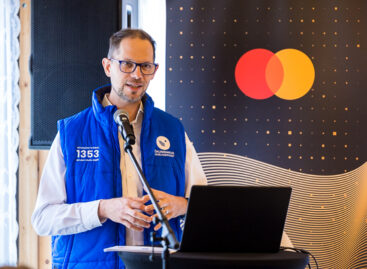Experts: education is the most effective defense against cybercriminals
Education is the most effective defense against cybercriminals, because no matter how technology develops on the side of attackers and defense, the weakest link is still the human being, more precisely, the lack of knowledge and a false sense of security – this was stated by experts at the Thursday event organized by Cyber Shield and Cyber Islands, a group of cybersecurity professionals, with the support of Mastercard, according to a statement sent to MTI.
 The information reminds us that this is why the Hungarian National Bank (MNB) and the Hungarian Banking Association launched the Cyber Shield program for educational and communication purposes in the fall of 2022. Several state and professional institutions soon joined the initiative, including the National Police Headquarters, the National Cyber Protection Institute of the National Security Service, and the National Media and Communications Authority. The program’s sponsors include the Ministry of Justice, the Regulated Activities Supervisory Authority, the Hungarian State Treasury, the Ministry of National Economy and the National Protection Service. In addition to state actors, market partners such as Szerencsejáték Zrt., Visa and Mastercard have also joined the joint work. The main goal is to increase user awareness and develop a digital security culture by disseminating basic knowledge that enables fraud prevention, recognition of scams and other attack attempts, and minimization of damage.
The information reminds us that this is why the Hungarian National Bank (MNB) and the Hungarian Banking Association launched the Cyber Shield program for educational and communication purposes in the fall of 2022. Several state and professional institutions soon joined the initiative, including the National Police Headquarters, the National Cyber Protection Institute of the National Security Service, and the National Media and Communications Authority. The program’s sponsors include the Ministry of Justice, the Regulated Activities Supervisory Authority, the Hungarian State Treasury, the Ministry of National Economy and the National Protection Service. In addition to state actors, market partners such as Szerencsejáték Zrt., Visa and Mastercard have also joined the joint work. The main goal is to increase user awareness and develop a digital security culture by disseminating basic knowledge that enables fraud prevention, recognition of scams and other attack attempts, and minimization of damage.
One of the program’s key platforms is the official website of KiberPajzs, www.kiberpajzs.hu, which serves education with constantly updated content: it introduces the most common types of fraud, provides useful advice for defense, and also provides the opportunity to report it. The site has now been visited by over 450,000 people, and is particularly popular among people over 45, who are considered one of the most vulnerable target groups for fraud.
The statement highlighted that according to recent projections, the damage caused by cybercrime globally is over $10 trillion, and could exceed $14 trillion by 2028.
The motivations for cybercrime include financial gain, political goals, or the desire for professional glory, or often a combination of these. However, the vast majority of fraud is financially motivated, they emphasized. Fraud in payment systems is usually not perpetrated by lone perpetrators, but by well-organized hacker groups. The primary goal of fraudsters is to obtain payment data (card data, internet banking login data) and the related secondary customer authentication codes, for which sophisticated techniques are used. A common method is phishing: fake websites, emails, SMS or mobile applications are created that deceptively resemble the interfaces of real service providers.
Erste Bank announced on Thursday that in order to prevent fraud and educate customers, the bank is now launching a podcast series in addition to its existing channels – its website, social media platforms, George App and George Web. From July 1, Erste customers will be even safer from fraudsters, as the bank will be among the first to join the central fraud filtering system operated by GIRO Zrt., which checks transactions in just half a second.
They added that Erste has been using and continuously developing its own real-time filtering system for years. With its monitoring activities, the bank is already able to filter out nearly 90 percent of fraud, and in the first quarter of this year it was able to prevent the theft of more than two billion forints. Last year, a total of 1,276 phishing pages associated with Erste were removed from the internet as a result, while 105 such pages were deleted in the first quarter of 2025.
Related news
A Mastercard Európában elsőként vezeti be az UEFA Champions League digitális passion kártyát az OTP Bankkal együttműködésben
🎧 Hallgasd a cikket: Lejátszás Szünet Folytatás Leállítás Nyelv: Auto…
Read more >The 6 most important payment trends in 2026:
🎧 Hallgasd a cikket: Lejátszás Szünet Folytatás Leállítás Nyelv: Auto…
Read more >Related news
Brits Embrace At‑Home Celebrations While Germans Cut Back on Valentine’s Day Spending
🎧 Hallgasd a cikket: Lejátszás Szünet Folytatás Leállítás Nyelv: Auto…
Read more >








